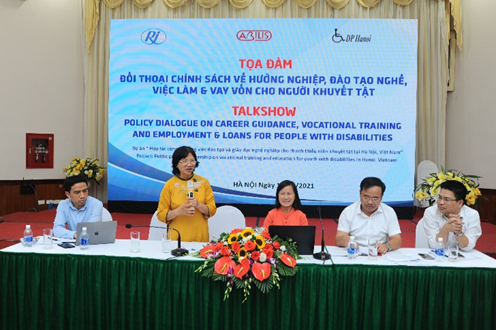COVID 19 brought in new rehabilitation needs for persons with disabilities. For many, this has meant an increased demand for rehabilitation worldwide. We found that many required (I) Special Rehabilitation services to meet needs of lungs affected by the virus, back and leg pain, high fatigue requires therapy and (II) Counselling as COVID 19 has resulted in increased stress and psycho – social disabilities. (III) As COVID 19 continues the prevention strategies for future was necessary.
Women with disability are found particularly vulnerable owing to their already restricted access to physiotherapy need being suspended further. SMRC provided a Mobile Health Unit with well-equipped rehabilitation need to provide physiotherapy services at the doorstep. The team consisting of a physiotherapist, a health assistant, a counsellor, and the driver of the vehicle.
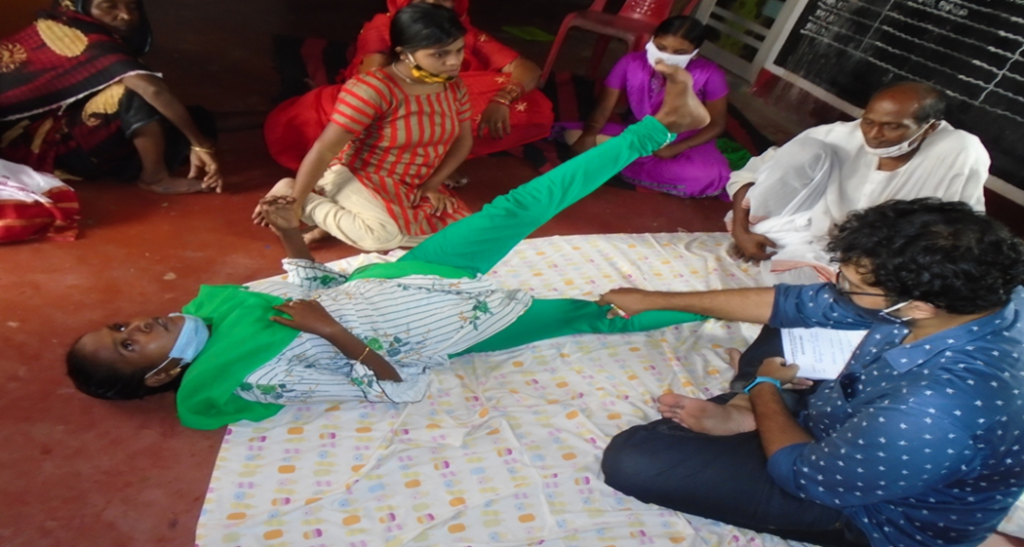
The team also educated women about infection preventions and control measures and the requirement of physical distancing during pandemic
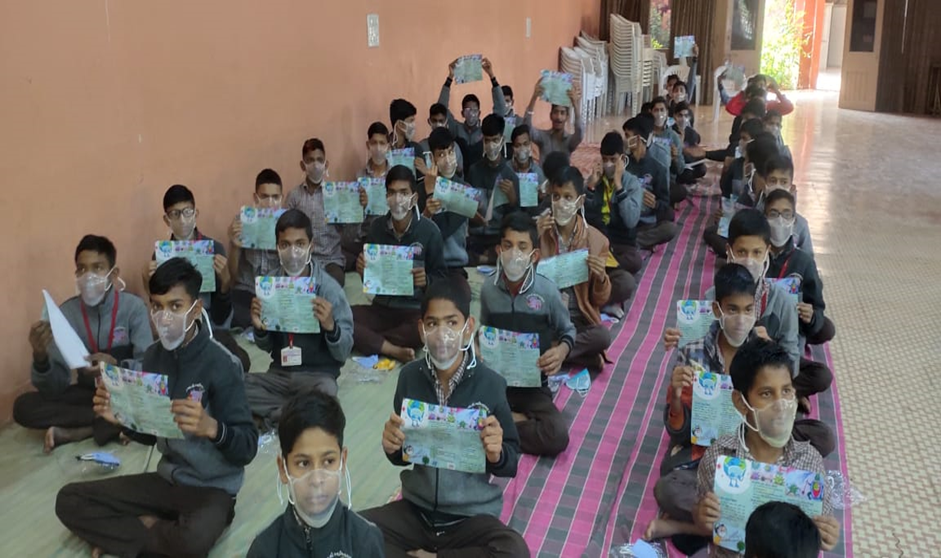
Women with disabilities were encouraged to make masks to be distributed in the project area and provide them with some earning.
India’s second wave has seen an increasing number of children being affected by the corona virus. The virus is moving into India’ rural hinterland where 71% of population stays without any health services. It is being predicted that the third wave of the virus which will follow at the end of the second by June – July will affect mostly children. This means India’s children are at high risk and children with disabilities at a higher risk. RI’s efforts through SMRC to create awareness on children using masks and providing masks to them through DPOs and local Government Officials from the Departments of disability helped in creating change.
SMRC used the Women with Disabilities from its project area to make 22500 facemasks made of cotton and with RI logo. 2500 inclusive (transparent) masks have been given to deaf children. A communication package was made and distributed with the masks to explain to parents on methods of using Masks and why it is necessary to use them. Mobile Health Unit to Address Rehab Need of Women with Disability during Pandemic
“Public private partnership on vocational training and education for youth with disabilities in Hanoi, Vietnam”- funded by the Rehabilitation International Global Disability Development Fund
In Vietnam, services of transition from VET to work for PWD are limited due to lack of collaboration between VET providers and employers. Currently, PWD mainly manage by them or get support from their relationships and DPOs to find suitable jobs after training.
This project aims at piloting an initiative of public private partnership (PPP) in providing vocational and education training (VET) and employment to youth with disabilities (YWD) in Hanoi to contribute to increase employment outcomes for youth with disabilities in districts in Hanoi, Vietnam
The main objective of the project is to pilot a model of improving access to formal VET and labor market for YWD through public private partnership between the government, vocational centers, disability employment services (DES), enterprises, and DPOs.
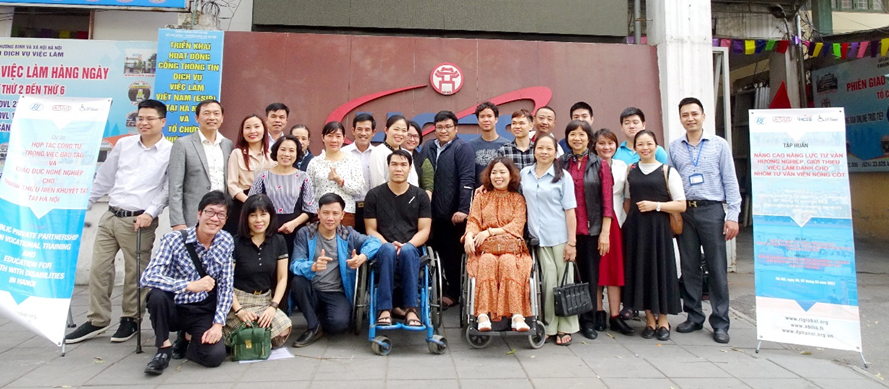
Main activities
- Develop and implement a joint action plan on VET and employment for YWD through PPP between National Department of VET, Hanoi Department of Labor, Invalids, and Social Affairs (DOLISA), vocational training centers, DES, enterprises, and organizations of people with disabilities (DPOs).
- Provide PWD the reasonable accesses and realistic orientation, skills according to their individual abilities.
Impact of the project:
Opportunities in accessing VET and employment for YWD was increased through a new and effective model of VET and employment for YWD in order to help them gain benefits of VET and employment such as rehabilitation, improved self-esteem, income and social inclusion.
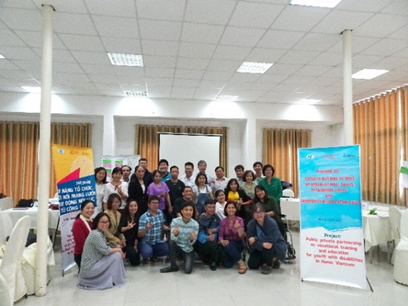
New skills and experiences that participants learn during the project are expected to bring positive changes in the disability and general community.
Materials and handbooks are also useful tools for project holder to continue providing vocational training programs for YWD.
Advocacy activities of this project are expected to bring positive impact to the whole community as new polices and policy modifications are essential tools to change the lives of people with disabilities in the long run.
In addition, this project is expected to contribute to implement the United Nations Convention on the Rights of people with disabilities (UNCRPD) through practicing rights to work for YWD in Vietnam.
One of the highlights of the project is the interest of stakeholders (such as Hanoi Department of Labor, Invalids, and Social Affairs, a number of businesses, vocational schools, organizations of people with disabilities, youth with disabilities wishing to study and find a job, families of PWDs the media, etc.)
